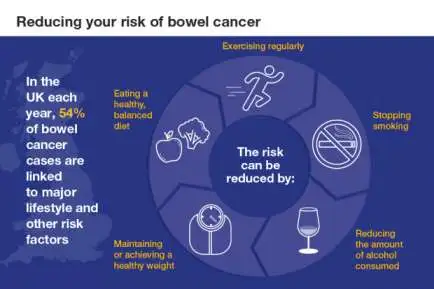
The first three months of your new baby’s life should be full of joy and love as you begin to learn about each other. But those early weeks can also bring unexpected and challenging problems…
Bringing a baby into the world is one of the best moments of a parent’s life, but the weeks that follow can be some of the most difficult. Despite thinking I had prepared myself, I never anticipated just how isolating, challenging, and pressuring I would find the postnatal period.
Giving birth: expectation vs reality
Many women arrive at the hospital armed with a birth plan, only to find things swiftly change as labour progresses. Having an elective C-section (due to health reasons), I thought I’d avoid this predicament, yet what played out was very different to what I’d anticipated.
Since I hadn’t gone into natural labour, neither my body nor brain seemed to comprehend that my baby’s arrival was imminent. While, luckily, my memories of my baby’s first hours are happy ones, the sense of confusion I felt when he was passed to me – and, if I’m honest, the relief I felt when the midwife then later took him back temporarily – also remains.
Mum-of-four Helen Hamston had plans to learn about hypnobirthing before her second child was born, but all that was pushed aside when her waters unexpectedly broke at 22 weeks.
After initially being told the baby had zero chance of survival, she endured constant hospital visits until 32 weeks, when she was finally induced. Says Helen: “I didn’t even have any baby grows or nappies, and she didn’t have a name. She was in intensive care for several weeks, which meant I had to leave her in the hospital. Very different to coming home with a baby to show her off to her big sister, like I’d imagined. It’s only 10 years later that I realise I have PTSD from this experience.”

Parents should take comfort that it’s common to feel all kinds of different emotions when you first meet your newborn. Clinical psychologist and hypnobirthing practitioner Dr Emma Svanberg (see her website, mumologist.com) explains: “I often wonder where this story of an instant rush of love came from, because the majority of women I speak to talk about feeling a sense of responsibility towards their new baby, but that feeling of love comes much later. A third of women actually come out of birth with trauma symptoms.”
Passing the test
Within minutes of a baby’s birth, they’ll undertake their first test: the Apgar score (an important check to see if they might need extra care). There’s no doubt this is vital, but it sets the tone of things to come.
After my little boy lost weight, days after being born, what ensued was daily weigh-ins, two overnight hospital admissions, and far too much Googling to get to the bottom of why he just wasn’t gaining as quickly as ‘the graph’ suggested he should. The answer? Well, there wasn’t one. And as I stare at his very prominent thigh rolls as I type this, I can reflect on how the experience initially knocked my confidence as a mother.
My one job seemed to be to feed him and help him grow; yet, at the time, I didn’t feel capable of that.
Not every baby grows in a uniform way, and the same goes for things like sleep and development milestones.
It’s about time we acknowledged that things don’t have to be perfect to be right, and that there’s no unilateral way of doing things
Cat Price, founder of organic cotton muslin brand Pattie & Co says: “My partner and I had real problems with pressure around my son’s sleep. You read books and get advice telling you what to expect at certain stages, but it just left me feeling as though we were doing something wrong, because our son just didn’t do what other babies seemed to do. It took a real toll on my mental health.”
“External markers can add a lot of pressure for parents,” explains Dr Svanberg. “Letting go of these feels difficult, but there are other ways to feel confident as a parent.”
Cat did learn to do this in time. “Eventually we decided to just accept the situation and stop trying to ‘fix it’; we were all much happier from then,” she explains.
The ‘l’ word
It’s important to acknowledge that the first few weeks and months can feel incredibly lonely; with some struggling to transition from a busy 9-to-5 and hectic social life, to days on end indoors with just a very tiny human for company.
Says Dr Svanberg: “As a society, we offer so little support to new parents at a time where many people live far from family. I see many women who feel a personal sense of responsibility about their feelings of loneliness.”
“I suffered extreme isolation after my daughter’s birth,” explains Helen, “which led me to creating the community website Mummy’s Gin Fund. My aim is to make sure no one feels lonely.”

It’s not just new mums who can feel alone. “Many dads struggle to bond with their baby, and experience a sense of isolation because they can’t be as fully involved with parenting as mothers,” explains Han Son Lee, founder of Daddilife, the UK’s largest online platform for dads.
The fact is, we’re all in this together – no matter what our circumstances. It’s about time we acknowledged that things don’t have to be perfect to be right, and that there’s no unilateral way of doing things. With support from each other, things run a little more smoothly. So, reach out, be there for others, and together we can make that fourth trimester that much easier.
Tips to help you through challenging times
Get out and about
Venturing to baby classes can make the world of difference. We love Hoop, a savvy app that shows what’s going on near you.
Find your tribe
Apps like Peanut and Mush are great for finding local parents near you.
You can’t do it all
Acknowledging how the people around you can support you doesn’t make you a bad parent!
Speak to your GP
If your low mood persists, do seek medical advice. Help is available with things such as talking therapy or medication.
For futher support visit counselling-directory.org.uk
Related Post
 01
01 Jul
7 Lifestyle Tips to Reduce Your Cancer Risk
How in all actuality do individuals bring down the possibilities getting malignant growth? There's a lot of exhortation. Yet, on occasion, guidance from one review conflicts with the exhortation from another. Disease avoidance data keeps on creating. In any case,.
Read More 27
27 Jun
Effective Allergy Treatments for Kids: A Comprehensive Guide
Is your youngster experiencing a runny nose, sniffling, and bothersome eyes? Assist them with feeling improved with these regular sensitivity cures you can attempt at home. Does your kid have a runny nose, sniffling, and irritated eyes? They may be managing.
Read More 20
20 Jun
Journal Prompts for Mental Health: 7 Ideas to Explore
Journaling has a heap of psychological well-being benefits, however you don't necessarily have any idea what to expound on to get the worth out of a journaling meeting. That is where journaling prompts for treatment come in. More profound diary prompts.
Read More 13
13 Jun
10 Natural Health and Nutrition Tips That Are Evidence-Based
If you have any desire to help your wellbeing and prosperity, there are a lot of regular and home solutions for browse, going from keeping away from singed meats and added sugars to rehearsing reflection. With regards to understanding what's sound,.
Read More